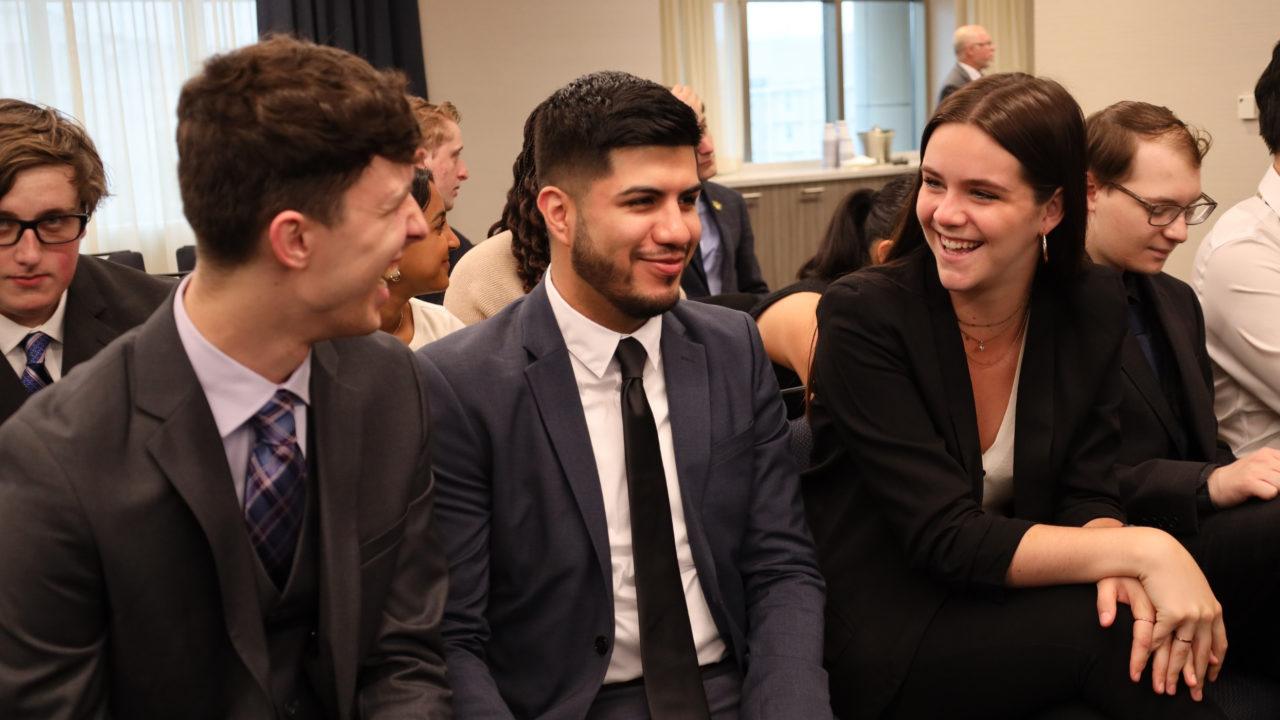
The Essential Guide to Answering Common Interview Questions
As an intern in Washington, D.C., you’ll likely face a range of common internship interview questions designed to gauge your suitability for the position. Here are some tips on how to answer these questions effectively and demonstrate to the employer that you’re the right fit for the internship:
“Tell me about yourself”
This is a common opening question that allows the interviewer to get a sense of who you are and what makes you unique. Keep your answer concise and focus on your strengths, relevant experiences and career goals.
Example: “I am a recent graduate of Faber College with a degree in Journalism. During my time at school, I interned at ABC News and gained valuable experience covering local and national news. I have a passion for investigative journalism and have written several articles that have been published in the school newspaper and online. In my spare time, I enjoy staying up to date on current events and reading about different cultures and perspectives. I am a strong writer and researcher, and I am excited about the opportunity to work for a reputable news organization like yours.”
“Why do you want to work for our organization or company?”
This question is meant to gauge your level of interest in the organization and the internship. Be specific about what attracted you to the company and how the internship aligns with your career goals and aspirations.
Example: “I have always been interested in international relations and diplomacy, and I believe that the State Department is an incredible opportunity to make a positive impact on the world. I am particularly drawn to the mission of the state department to promote peace and stability and I am excited about the chance to work with a diverse team of professionals on global issues. I am also drawn to the opportunity to work on a variety of projects and to continually learn and grow in my career. Overall, I believe that working for the state department would be a meaningful and rewarding experience, and I am eager to be a part of the team.”
“What are your strengths and weaknesses?”
When discussing your strengths, think about areas that are applicable to the internship for which you are applying. For example, if you’re applying for a marketing internship, you could mention your strong writing skills, social media experience, or ability to work effectively in a team. As for weaknesses, it’s important to be honest, but also to emphasize any efforts you have made to become better in these areas. For example, if you have difficulty with public speaking, you could talk about the courses you’ve taken to improve your confidence and skills in this area.
Example: “My strengths include my strong communication skills, my ability to work effectively in a team, and my attention to detail. I am also highly organized and able to handle multiple tasks at once. One of my weaknesses is that I can be a perfectionist at times, which can lead to me spending too much time on a task. I am working on finding a balance and being more efficient in my work. Overall, I believe that my strengths make me well-suited for a position in a Senate Office, where strong communication and teamwork skills are crucial.”
“What are your long-term career goals?”
This question is meant to gauge your level of commitment to a career in your field of study. Be specific about your goals and how the internship will help you achieve them.
Example: “My long-term career goal is to work for an advocacy organization and to use my skills and passion to make a positive impact on social issues. I am particularly interested in working for an organization that focuses on education reform or environmental sustainability. I hope to eventually become a leader in the organization and to work on shaping policy and creating positive change. I believe that working for your organization in Washington D.C. would provide me with the opportunity to make a meaningful difference and to grow professionally.”
“Why should we hire you over other candidates?”
This is your opportunity to sell yourself and highlight the unique skills and experiences that make you the best fit for the internship. Focus on how your strengths and goals align with the internship site’s needs and objectives.
Example: “I believe that I am the best candidate for this position because of my strong research skills, my experience in policy analysis and my passion for public policy. I have a degree in Political Science and have gained valuable experience through internships at AEI and Brookings, where I worked on policy research and analysis. I am also a quick learner and am eager to take on new challenges and learn from my colleagues. Overall, I am confident that I would be a valuable asset to your think tank and would thrive in this role.”
When going into an internship interview, it’s essential to be confident and well-prepared for the questions that you may be asked. Showing your skills and enthusiasm in an interview will demonstrate to the employer that you are the ideal candidate and that you have what it takes to make a meaningful contribution to the organization. Being prepared and having the right attitude will help you stand out from the competition and make a strong impression.